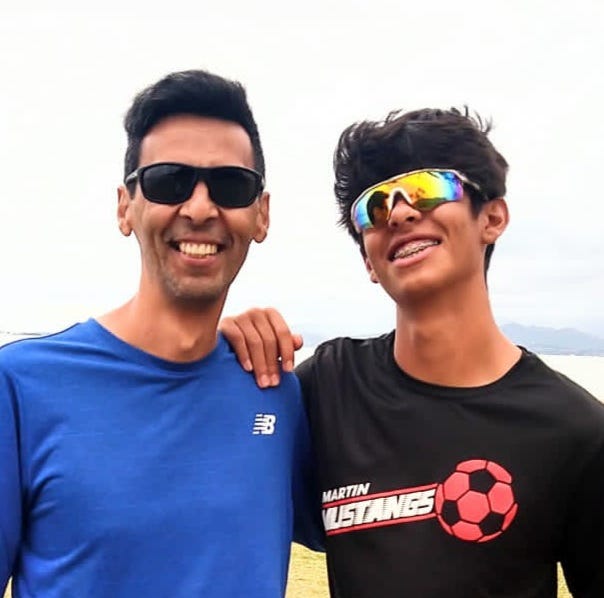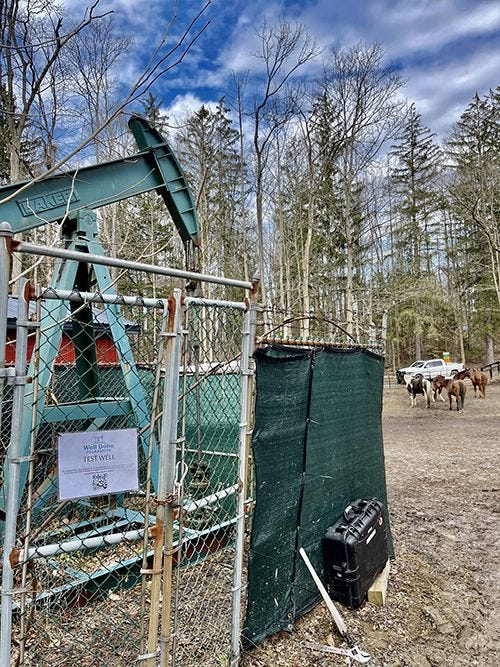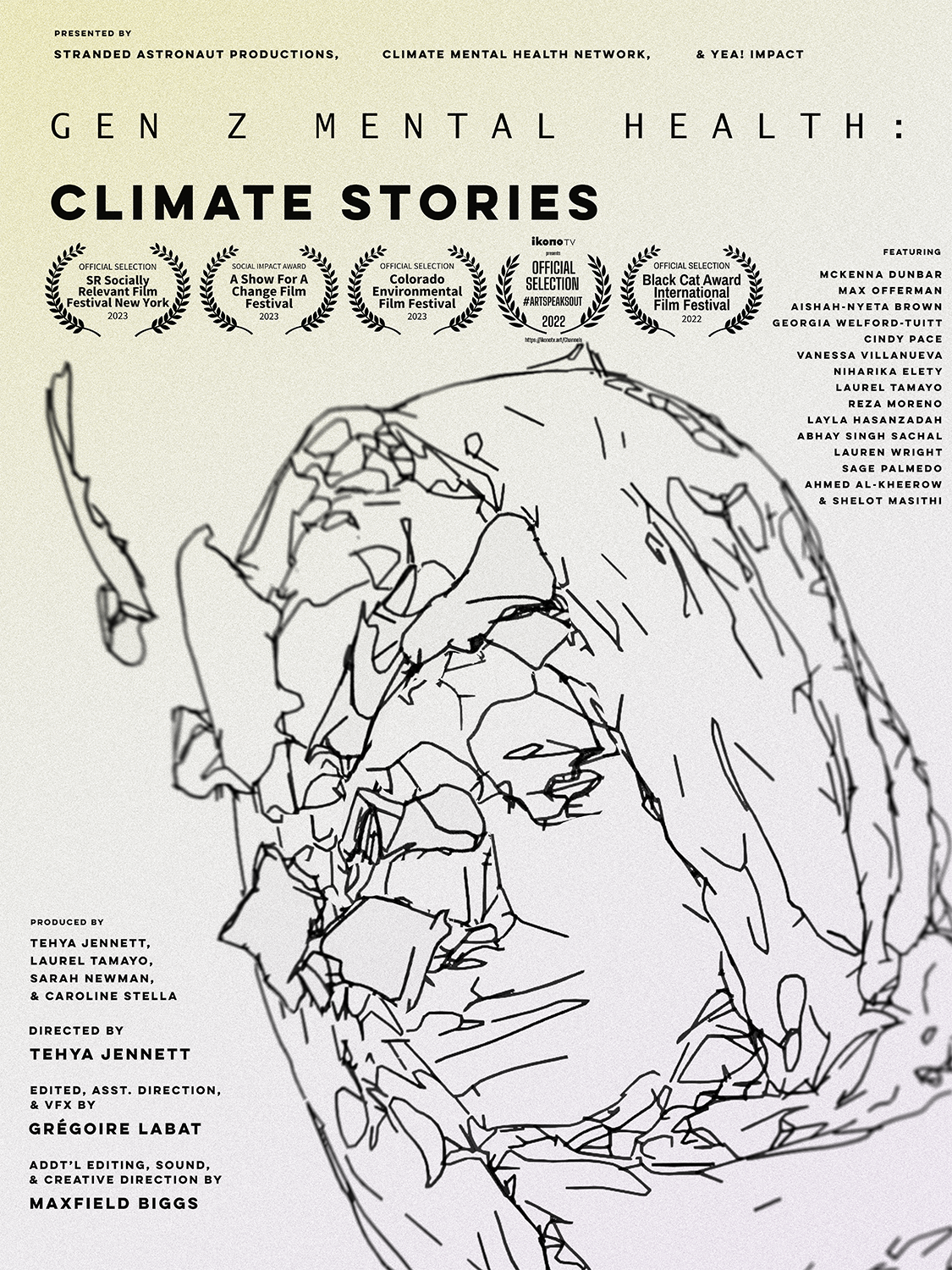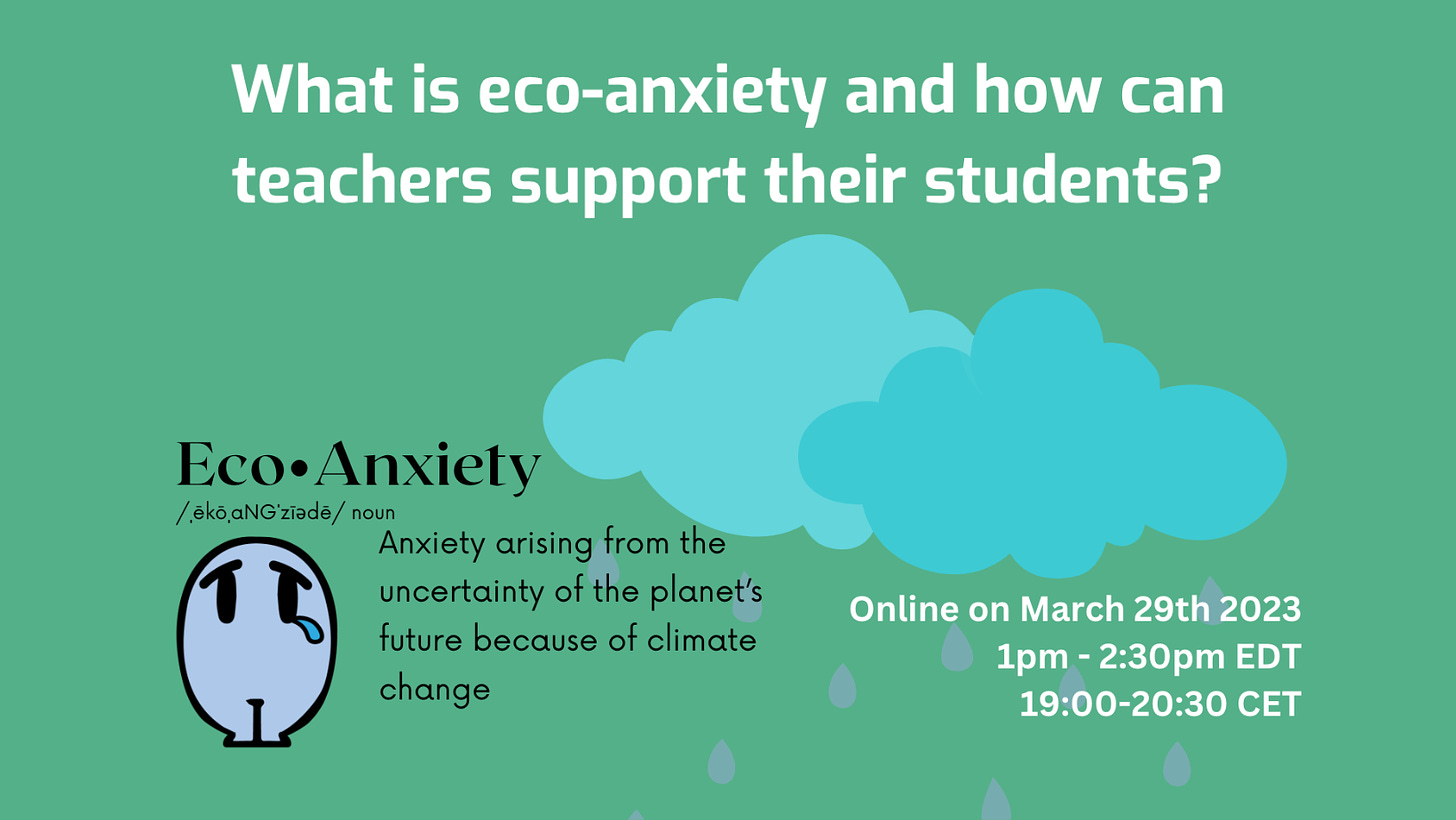Hi there!
Welcome to Gen Dread, a newsletter about how the climate crisis is making us feel, why that’s happening, and what we can do about it. Subscribe now to find community, comfort, and practical coping strategies from experts all around the world.
When Mateo De La Rocha was nine years old, he moved with his family from La Paz, Bolivia, to North Carolina, where he’s currently a junior in high school.
“It was a completely different world,” he remembers. “It was nature that I hadn’t seen over there. And I wanted to experience that for the rest of the time that I was here, and I didn’t want to see it being taken away.”
So when it was taken away, it awoke something in Mateo – a deep connection with his environment and a profound urge to protect it. At the time, his region of North Carolina was developing quickly, attracting big business, and transforming in alarming and unsettling ways.
“It used to be pretty much all trees,” he explains. “But in the years that I’ve lived here, the whole area around me has been changing, and they’ve been cutting down all the trees to make buildings because all these big businesses are moving here. And I remember thinking, I don’t care what big businesses move here. All I care about is the nature staying there, because that’s what’s good for the planet.”
Mateo recalls that the types of environmental activism available to him at that time felt pretty underwhelming.
“In elementary school, all the options they gave to little kids were like ‘go out and clean up the trash around the school’ or ‘reuse water bottles’ or ‘recycle whatever you can’ but at the end of the day, you can’t have control over everyone, or over a large area, when it comes to that. So it was impactful but not as impactful as I wanted it to be.”
Recently, that concern led Mateo to discover some of Britt’s videos on YouTube. Around the same time, a beloved member of his family confided that they were experiencing climate anxiety. The collision of those two things prompted Mateo to go find a tangible environmental action with a powerful impact – something he could do to both slow the climate crisis and help his relative feel seen, understood, and supported.
Mateo had specific criteria for his project: he wanted it to make a concrete difference, he wanted it to be easily replicable for anyone, and he wanted young people in particular to feel it was accessible for them to join in and help out.
“I started looking at the solutions that pretty much everyone talks about – solar panels and electric vehicles,” he says. “Like the Teslas I see around my area. But as we all know, those are way too expensive for kids. You have to pay tens of thousands of dollars just to get those.”
Overwhelmed and a little stuck, he approached his parents for guidance.
“So I kind of became his advisor,” his dad Rodrigo says. “The first thing I told him was, why don’t you start by researching a little bit about global warming. That’s where he started, and it took him several months, and he kinda got stuck several times, he got frustrated. He would learn more, get stuck, learn more, get stuck, and I’d try to redirect him a little bit. And I’d say, what are the root causes? What are the main drivers? What’s creating the biggest impact? Maybe you can find something there.”
Eight months later, they found some articles and videos about the millions of abandoned gas wells across the US that are spewing high concentrations of methane, causing more than 80 times the warming of carbon dioxide. They consulted research from the IPCC and several universities and discovered that plugging these wells with cement can be thousands of times more effective than electric vehicles or installing solar panels, to prevent warming. This devastating impact of methane isn’t typically highlighted in public conversations about climate.
As a final step, Rodrigo helped Mateo vet and then partner with the Well Done Foundation, which uses crowdfunding to identify where these high-emission wells are located and shut them down.
A few of Mateo’s friends joined his mission: to shut down a particular well outside of Akron, Ohio. It usually costs about $60,000 USD to do this. “It’s about the cost of a Tesla,” Rodrigo explains. “The difference though, is that not shutting down this well is the equivalent of driving 1000 Teslas for 20 years. But no, it’s not cheap!”
However, because the Well Done Foundation uses a mix of crowdfunding, multiple partnerships, and other donors, Mateo and his team aim to raise a manageable portion of that amount ($5,000) rather than being solely responsible for the entire thing. And that fulfilled Mateo’s wish to have a project that young people felt empowered and able to join.
“Through partnering with this non-profit, if everyone chips in, even little kids who have 5 bucks or 10 bucks and who care just like me, then they can play a super-big role,” Mateo says.
And so, Mateo and his team launched their crowdfunding platform page along with an Instagram account called the Youth Climate Initiative where his friends, classmates, and peers can follow the project’s progression. He and his team prepared slide presentations for the environmental clubs around his school, and gradually, that began to translate into Instagram followers, most of whom are high school students.
The Well Done Foundation estimates they’ll have the funds to shut down this Ohio well by early- to mid-summer. Once the date is set and all the permits are cleared, they’ve invited Mateo and his team out to Akron to join them in plugging the well with cement. Mateo and Rodrigo are hoping to chat with local media and film this exciting culmination of their efforts so all their followers and supporters can see that their money and energy went towards accomplishing this specific and profound solution.
“We want to be able to show all those people that their donations and their help in sharing awareness, that didn’t just vanish – it resulted in the well finally getting plugged,” Mateo says.
We talked a bit about how it feels to make the leap from worrying and watching the environment to actually taking real action. Mateo describes a real satisfaction in knowing that his mission is radiating outwards and inspiring his community.
“Looking back on the impact I wanted to have as a little kid, I know the little kid inside of me would be proud and happy to see where I am now and how I’m impacting the anxiety of others,” he shares. “Not only am I doing this for myself and my own family, I want to do this to impact all the other people – they don’t even have to have anxiety about the climate, but just the people who care. I just hope that this project can be an option for people who feel like they have no options right now. This can be their path, an opportunity to act on the anxiety that they’re feeling right now. And hopefully that will take away some of that anxiety.”
And of course, the person at the centre of that community is the relative who shared their climate anxiety with Mateo. Rodrigo thinks that Mateo’s mission has really helped their family member in two meaningful ways.
Firstly, they saw that Mateo teamed up with other members of the family, alongside students at his high school, to not only research the problem but apply themselves to fixing the problem. This has made their relative feel looked after and held in empathy by a whole fleet of caring people.
Secondly, the project has instilled a deep sense of possibility, strength, and opportunity. As Rodrigo explains, “They feel like, okay, I’m truly chipping away at this problem now. And the idea of chipping away at worry with a little bit of action has felt really empowering.”
Making Waves
Host a screening of Gen Z Mental Health: Climate Stories a short documentary that explores the mental health impacts of the climate crisis to young adults worldwide, and considers what resilience means when fighting for the right to a livable planet. The film captures the emotions of a generation that may be frightened, but is anything but hopeless, saving room for stories of love, community connections, and healing. Directed by Tehya Jennett of Stranded Astronaut Productions and produced by Paramount, Climate Mental Health Network, and Yea Impact!
The film has English closed captioning and it will be available with Spanish and Italian subtitles soon.
“Participants will learn what eco-anxiety is, how to recognize it, how to address it in the classroom settings, and how to account for it in climate change educational practices across the curriculum. Acknowledging that educators are not typically trained, or expected to be mental health professionals, this webinar focuses on non-clinical approaches that can be safely implemented inside and outside of the classroom to safely address students’ eco-anxiety with compassion and empathy.”
Join this free webinar by Teachers for Future International in partnership with mochi4theplanet, specifically developed for educators working with students at all levels of education (from early childhood to post-secondary) on the topic of eco-anxiety and its implications for learning and curriculum development.
With Many Roots is a regenerative mission-led equitable business that currently focuses on climate science and climate silence by delivering collaborative, interactive, educational workshops based on robust research. Together with Sophia Cheng, founder of With Many Roots, we collected a range of tools introduced in the Generation Dread book and turned them into a visual glossary that you can access below:
As always, you can share your thoughts and reach the Gen Dread community by commenting on this article or replying to this email. You can also follow along on Twitter and Instagram.
‘Till next time!












Share this post